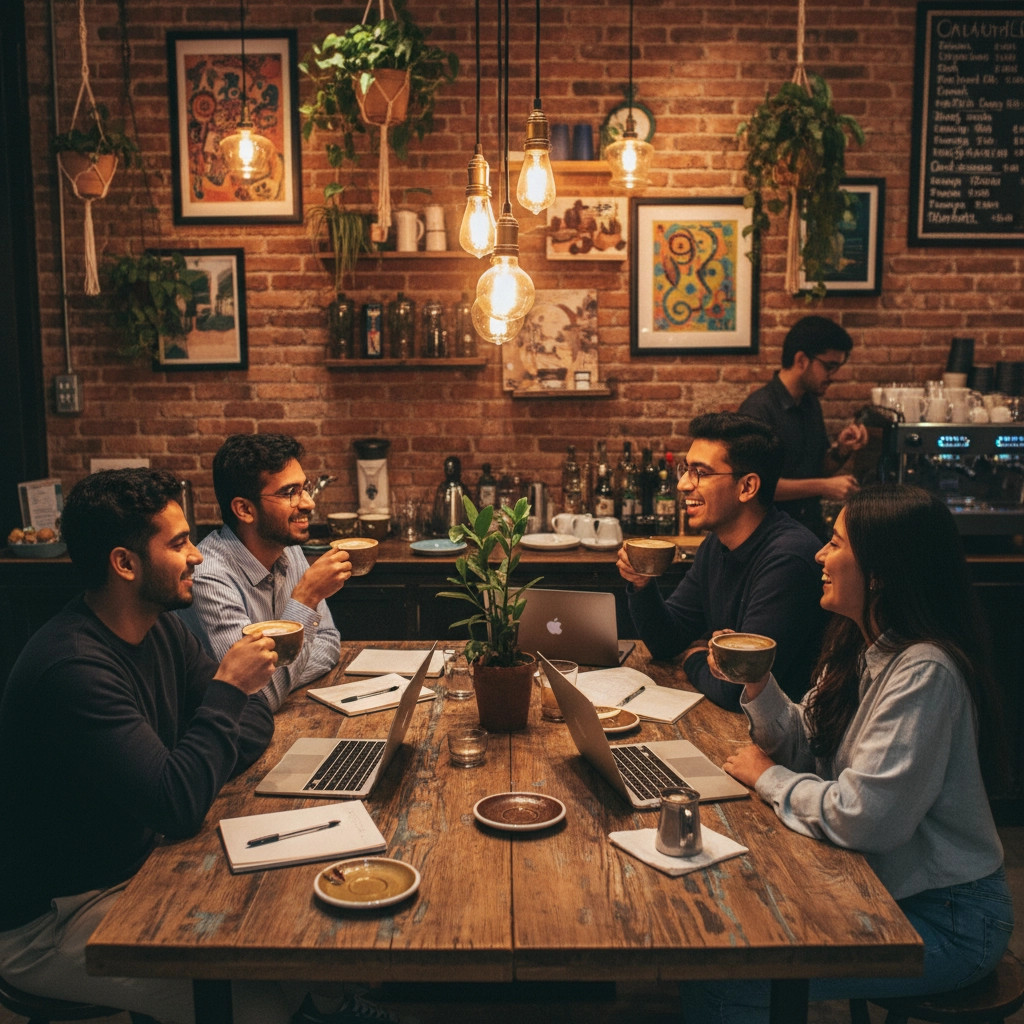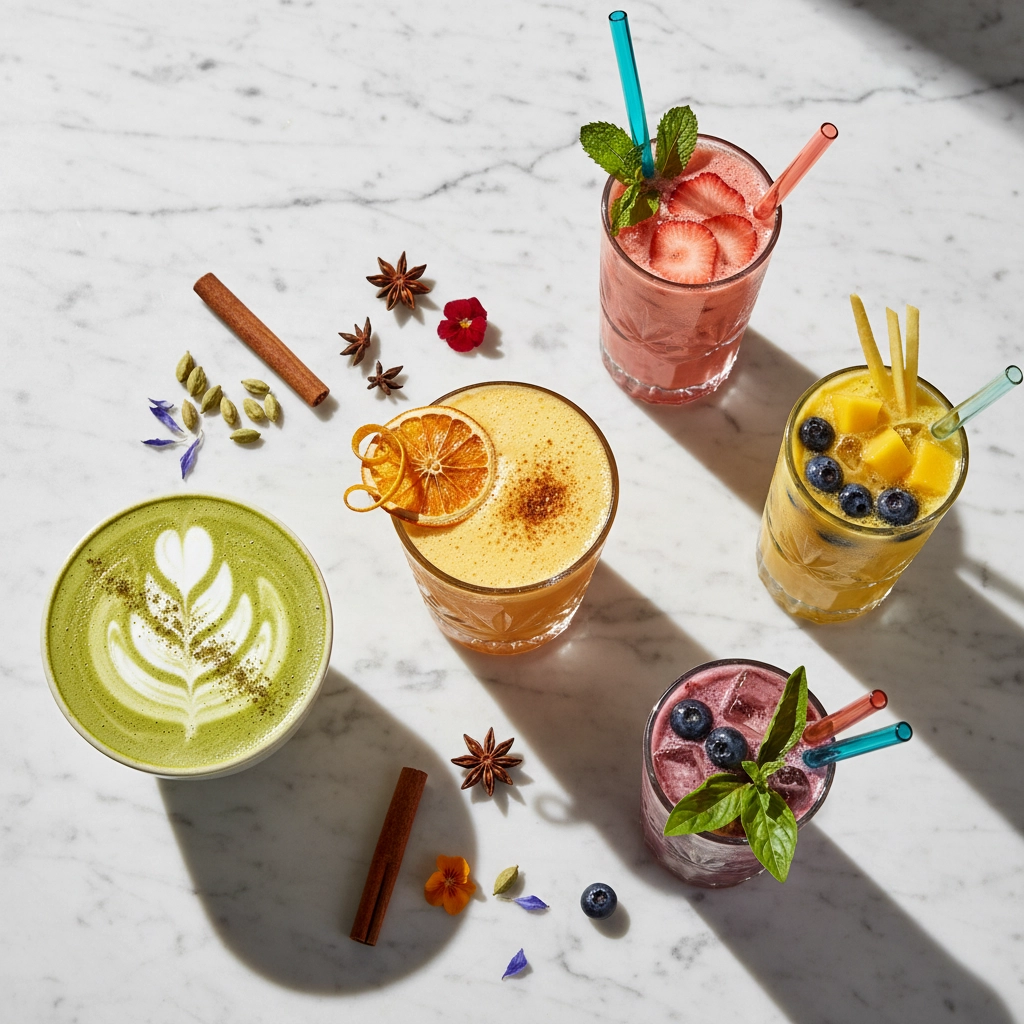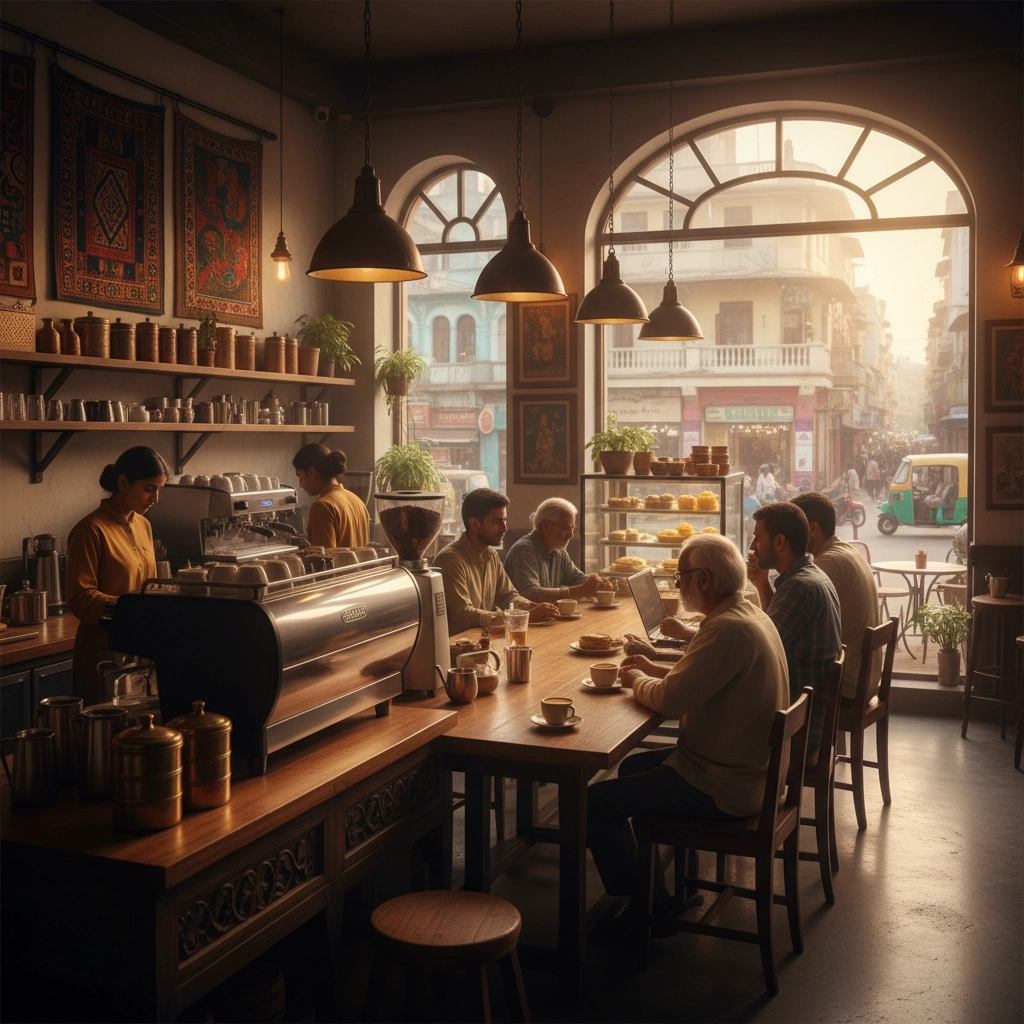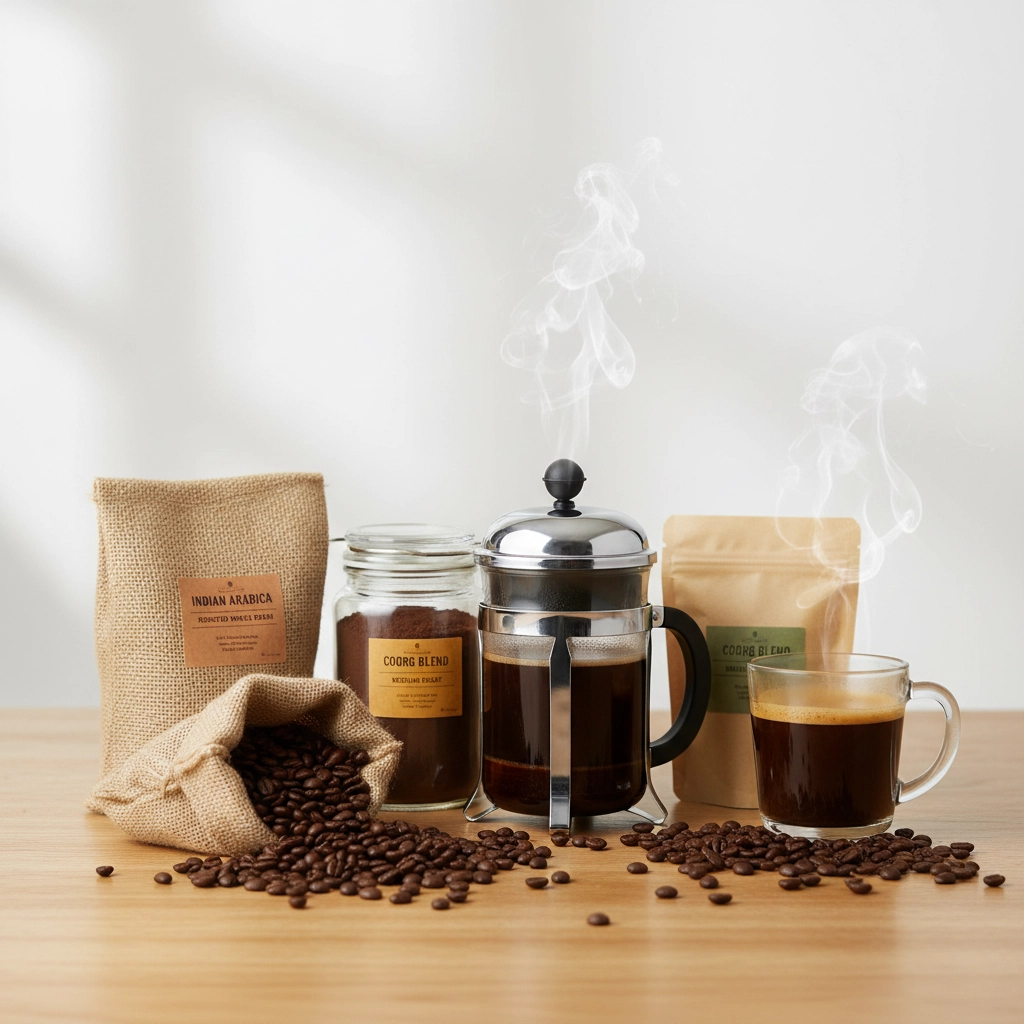Why Gen Z Is Ditching International Brands for Indian Specialty Coffee (And You Should Too)
- ADITYA Kumar
- Oct 18, 2025
- 5 min read
Walk into any coffee shop in Mumbai, Bangalore, or Delhi these days, and you'll notice something interesting. The queue isn't filled with people ordering the same predictable lattes and frappuccinos from international chains. Instead, younger customers are asking about single-origin beans from Chikmagalur, discussing brewing methods, and choosing cafés that feel more like community spaces than corporate cookie-cutter outlets.
This isn't just a passing trend. Gen Z and millennials: who make up nearly 65% of India's specialty coffee consumers: are fundamentally reshaping how we think about coffee. They're moving away from the familiar logos of global chains and embracing something more authentic, more connected, and frankly, more interesting.
The Experience Economy Has Arrived

Coffee isn't just about caffeine anymore. For Gen Z, it's become a canvas for personal expression and meaningful experiences. These aren't customers who want to grab a quick cup and leave: they want spaces that work as casual meeting spots, business hubs, and creative sanctuaries.
Here's what younger coffee drinkers are actually looking for:
Authentic storytelling: They want to know where their beans come from, who grew them, and how they're processed
Community connection: Spaces that feel local and genuine, not like they could be anywhere in the world
Quality over brand recognition: Better taste and craftsmanship matter more than familiar logos
Instagram-worthy experiences: Visually appealing drinks and spaces that reflect their personality
International chains, with their standardized menus and identical interiors, struggle to deliver on these expectations. They're built for consistency and scale, not for the kind of intimate, story-driven experience that resonates with today's coffee culture.
Authenticity Beats Corporate Marketing Every Time
Let's be honest: Gen Z has developed a pretty sharp radar for marketing BS. They've grown up with social media, and they can spot performative sustainability claims and recycled ethical taglines from a mile away. Indian specialty coffee brands have a natural advantage here because many of them have direct relationships with local coffee estates.
Take our own sourcing, for example. When you buy Chikmagalur green coffee beans or Coorg single-origin beans, you're getting coffee from specific regions with distinct flavor profiles. There's no corporate middleman or vague "ethically sourced" claims: just transparency about exactly where your coffee comes from.

This farm-to-cup approach isn't just marketing speak for Indian specialty coffee brands. It's how many of them actually operate. They're creating genuine connections between coffee drinkers and the farmers who grow their beans, something that's nearly impossible for massive international chains to replicate authentically.
Innovation That Actually Makes Sense
Here's where things get really interesting. While international chains are slow to adapt (thanks to global standardization requirements), Indian specialty coffee brands are pushing creative boundaries in ways that actually resonate with local tastes.
Fruit-infused coffees have exploded in popularity, accounting for 22% of all offerings in India's foodservice market. We're talking about drinks like:
Orange Brulee Cappuccinos
Avocado-based coffee drinks
Seasonal fruit combinations that change with local harvests
Sugar-free alternatives that don't compromise on flavor
These aren't random Instagram trends. They're natural evolutions that build on coffee's inherent flavor complexity while catering to health-conscious consumers who want more than just another sugary latte.

The Tier 2 and 3 City Revolution
While international chains focus heavily on metro areas, something fascinating is happening in cities like Jaipur, Lucknow, Chandigarh, and Hyderabad. Local entrepreneurs are building coffee cultures rooted in their communities rather than importing them wholesale from Seattle or Milan.
For Gen Z consumers in these cities, supporting local specialty coffee brands offers a way to participate in global coffee culture while maintaining their distinct regional identity. They're not just buying coffee: they're investing in their local economy and supporting businesses that understand their community.
This grassroots movement is creating a ripple effect. As these regional brands grow, they're setting new standards for quality, transparency, and customer experience that even international chains can't ignore.
Why Quality Matters More Than Ever

The Indian coffee market is forecast to double by 2030, with specialty coffee accounting for nearly 18% of this growth. This isn't happening because of clever marketing: it's driven by genuine quality improvements and a growing understanding of what good coffee actually tastes like.
Indian specialty coffee brands typically offer:
Better quality-to-price ratios: More bang for your buck compared to international chains
Transparency: Clear information about sourcing, roasting dates, and brewing recommendations
Freshness: Smaller batches and local roasting mean fresher coffee
Customization: Willingness to adjust brewing methods and create custom blends
When you compare our premium coffee powder or roasted arabica beans to what you'd get from an international chain, the difference is immediately obvious. The flavor complexity, the aroma, the overall coffee experience: it's just better.
The Real Reasons You Should Make the Switch
Look, we're not saying international coffee chains are evil or that they don't have their place. But here's why the shift toward Indian specialty coffee makes sense for pretty much everyone:
Supporting local economies: Every purchase directly supports Indian coffee farmers, local roasters, and community-focused businesses instead of funneling profits to multinational corporations.
Better value: You get higher quality coffee for competitive prices, plus the satisfaction of knowing exactly what you're paying for.
Authentic experiences: Homegrown cafés create spaces that feel genuinely connected to their communities rather than interchangeable corporate environments.
Innovation and experimentation: Domestic brands can introduce creative drinks and brewing methods faster than international chains constrained by global standardization.

Environmental impact: Shorter supply chains and direct relationships with local farmers typically mean lower carbon footprints and more sustainable practices.
What This Means Going Forward
The movement toward Indian specialty coffee represents more than just changing consumer preferences. It signals a generational shift in how young Indians think about consumption, community, and quality. People want to know where their beans come from, who grew them, and how they're processed. This curiosity is driving quality improvements across the entire industry.
As India's middle class continues expanding: expected to reach 61% of the population by 2047: this trend will only accelerate. Higher disposable incomes combined with coffee education are creating unprecedented demand for specialty coffee that delivers on both quality and values.
The question isn't whether this shift will continue: it's whether you want to be part of it from the beginning or catch up later. Indian specialty coffee brands are rewriting the coffee story, one cup at a time. And honestly? There's never been a better time to discover what you've been missing.
Ready to explore what Indian specialty coffee has to offer? Check out our full range and taste the difference that transparency, quality, and genuine craftsmanship can make.

Comments